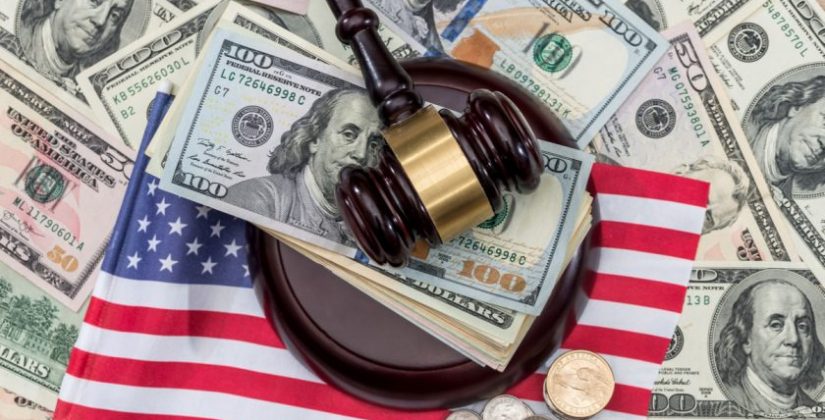President Trump and Michael Cohen: advice privilege and the ‘iniquity exemption’
David Burrows explores issues of privilege arising from recent revelations about the conduct of the US President’s former lawyer

Advice privilege and Mr Trump’s hush money
The Guardian reported on 22 August 2018 of President Trump’s lawyer:
“Michael Cohen, his long-time lawyer and ‘fixer’, pleaded guilty to eight charges including campaign finance violations and directly implicated Trump in paying ‘hush money’ to women with whom he allegedly had affairs.”
Where does that leave the long-standing common law rule: that, as a special branch of confidentiality, what a person tells his or her lawyer is covered by secrecy. That is by legal professional privilege (LPP), and its principal branch, legal advice privilege (LAP))?
In what follows it will be assumed that paying “hush money”, in this context, amounts to a crime; and that the law of privilege – based as it is on the common law (see eg R (Prudential plc) v Special Commissioner of Income Tax [2013] UKSC 1, [2013] 2 AC 185) – is broadly the same in the United States as it is in English law (on which the following summary is based).
The ‘iniquity exemption’
To what extent does LAP apply where the purpose of discussions with the lawyer is to further a crime, or to involve the lawyer in furthering a crime? This question dates back at least to the later nineteenth century. In R v Cox and Railton (1884) 14 QBD 153 the court of Crown Cases Reserved considered a case where business partners consulted a solicitor. They asked for his advice as to the dating of a deed in such a way as to avoid property owned by one of them being subject to enforcement proceedings.
The case’s head-note summarises the position: “Communications made to a solicitor by his client before the commission of a crime for the purpose of being guided or helped in the commission of it, are not privileged from disclosure.” Stephens J explained this at pp 170-171. The client’s fraudulent purpose prevents LAP even existing:
“The principle on which we proceed is this: that where anything is done, any communication made from a client to an attorney, with reference to a [171] fraudulent purpose, the privilege does not exist; the fraudulent character of the communication takes away the privilege.”
The issue arose a couple of years ago when the “Panama papers” were leaked to the press. The question remains with those papers: to what extent are any of the leaked documents covered by LAP at all (eg tax avoidance (legal: accountants advise on it all the time) or tax evasion (normally a crime)); or were they outside the scheme of privilege so that the press (and indeed formerly married parties’ lawyers) could legitimately publicise or otherwise use the material?
Public interest in confidentiality
There is a strong public interest in confidential information remaining private (Attorney-General v Guardian Newspapers Ltd (No 2) [1990] 1 AC 109 (the Spycatcher case)). This is the case – and more so – in the case of confidential information covered also by LAP. Advice privilege applies to confidential information passed to a lawyer by a client, to enable the lawyer to advise and to act for the client. It applies to the advice provided by the lawyer.
The right to privacy which results from the privilege is the right of the client, not of the lawyer. The justification for LAP is its importance to administration of justice. An individual should have the right (ie not strictly a ‘privilege’ at all) privately to “make a clean breast” of a matter to a legal adviser. This was explained by Jessel MR in Anderson v Bank of British Columbia (1876) 2 ChD 644 at 649:
“The object and meaning of the rule is this: that as, by reason of the complexity and difficulty of our law, litigation can only be properly conducted by professional men… [That being so it is necessary that a client] should be able to make a clean breast of it to the gentleman whom he consults …; that he should be able to place unrestricted and unbounded confidence in the professional agent, and that the communications he so makes to him should be kept secret, unless with his consent (for it is his privilege, and not the privilege of the confidential agent), that he should be enabled properly to conduct his litigation. That is the meaning of the rule.”
A history of LPP and a classic definition can be found in Lord Taylor CJ’s speech in R v Derby Magistrates’ Court, ex p B [1995] UKHL 18, [1996] 1 AC 487, [1996] 1 FLR 513. This case stressed the extent of the public interest in administration of justice: that a lawyer must be able to give his client an unqualified assurance that whatever the client tells him in confidence will never be disclosed without his consent; and that this assurance is absolute subject to the ‘iniquity exemption’, in which case – as Stephens J explained – the “privilege did not exist” in the first place.
‘Iniquity exemption’ and a justification for production in court
The question for a common law court remains: was Mr Cohen’s advice given to Mr Trump, or documents created, to further crime or fraud? If they were, then privilege will not assist the lawyer or the client. What then is President Trump’s position on this question in the case of any ‘hush money’ paid, and of any advice given to deal with those payments?